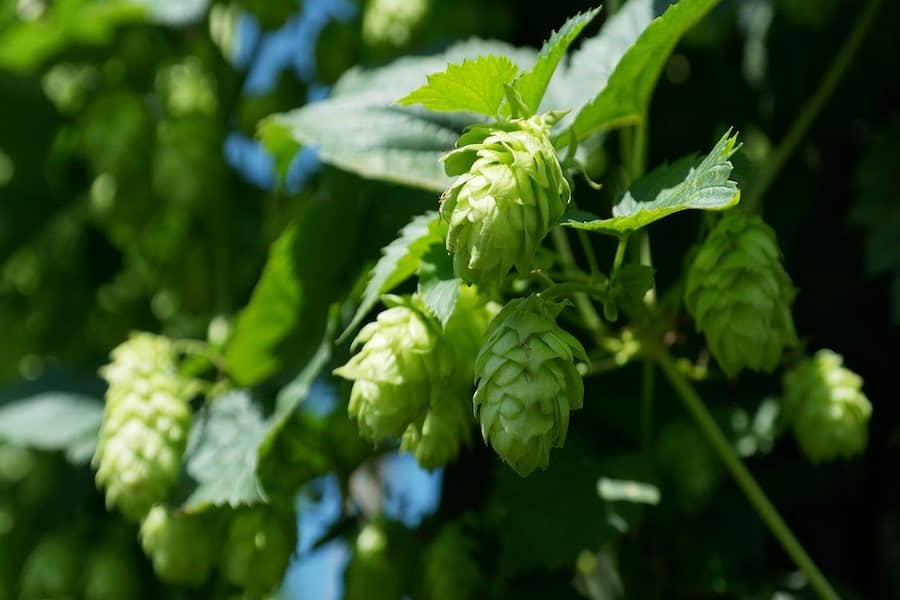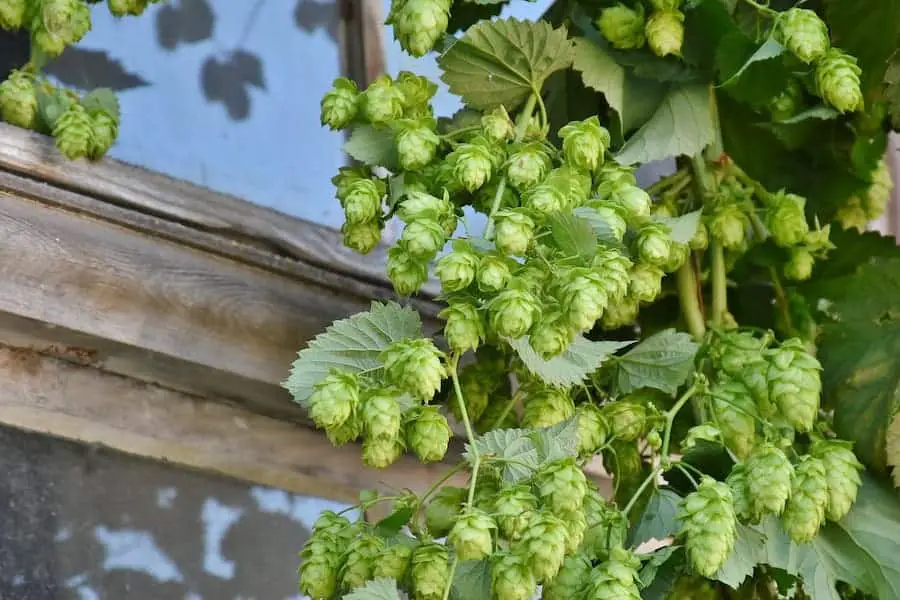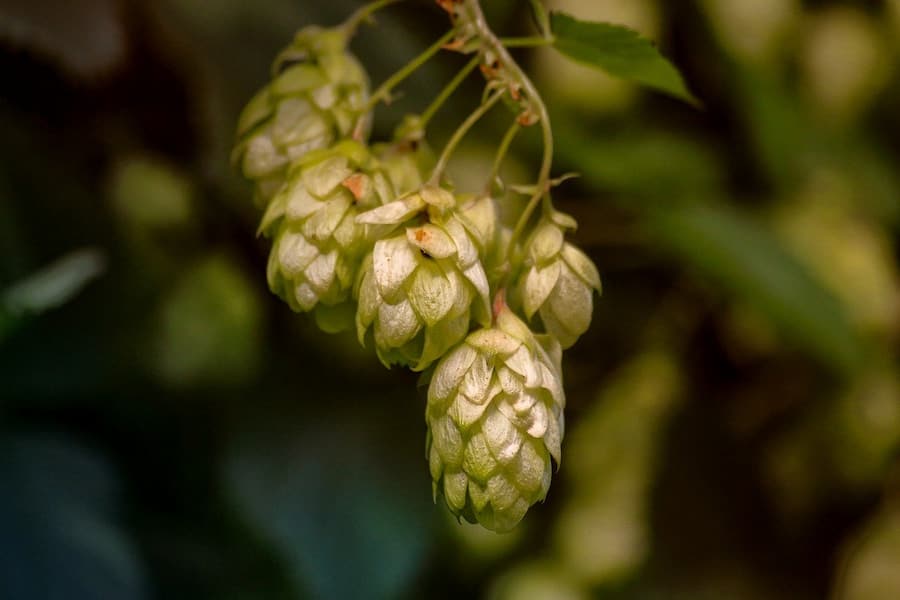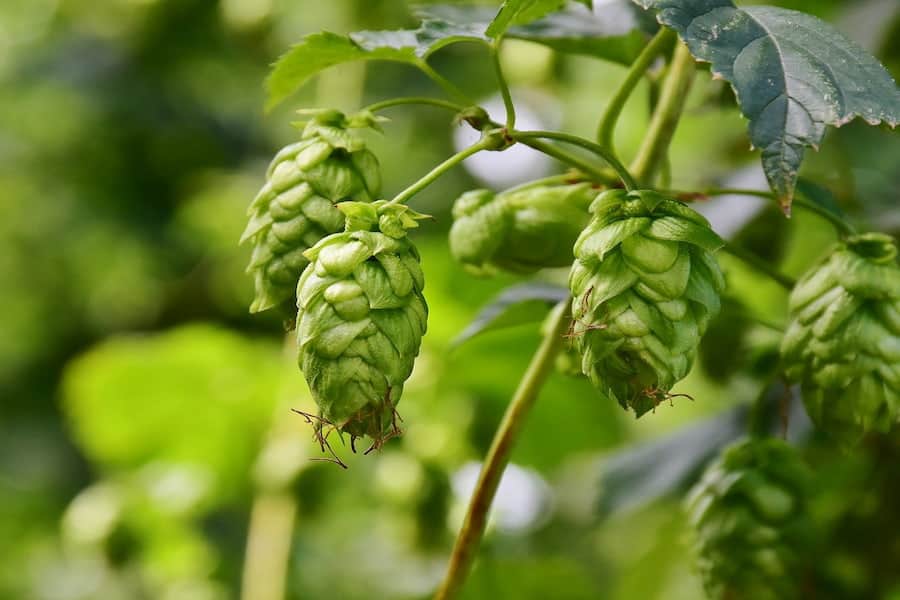If you buy something through a link in our posts, we may get a small share of the sale.
Hops assist in maintaining the freshness of beer, prolonging its shelf life. If you do not store hops correctly, they will absorb some bad smell from your refrigerator. This article provides you with everything you need to know on how to store hops.
Contents
How to Store Hops
Hops are highly perishable and any storage mistake can make them go bad. The biggest enemies of hops are light, heat, oxygen, and moisture. In this guide, I will provide you with tips on how to store hops away from these elements.

Store Hops in Oxygen-Free Places
Oxygen is the worst enemy of hops, and so limiting their exposure to oxygen ensures long-term storage. Let me see the effect of oxygen on hops and how you can eliminate it.
How Oxygen Affects Hops
Oxygen reduces the value of the precious oils that help in delivering hops’ special aromas and flavors on beers. Also, oxygen breaks down the alpha acids that are responsible for the beer’s bitterness, that is why you may have heard about the Hops Storage Index (HSI).
The HSI determines how often varying varieties of hops shed their bitterness over time. Besides, Oxygen quantifies the number of Alpha acids that will remain after storage of 6 months.
How to Store Hops Away From Oxygen
Here are some different ways you can use to store hops away from oxygen:
- You can store hops professionally in vacuum-sealed or nitrogen-flushed bags.
- For homebrewers, nitrogen is most likely not the best option but if you are storing large amounts of hops, it’s recommended to invest in a home vacuum sealer. Also, vacuum sealers are ideal for storing leftovers.
- Some brands have the mason jar attachment which is impermeable to odors and air, making them a great option if you want to store your beer for later use.
- Additionally, you can flush your storage container with carbon dioxide ensuring your hops are exposed to less oxygen. You can do this easily and effectively if you have the carbon dioxide kegging setup rather than using your own hands.
Store Your Hops in Cool Places
The reason why you should not store your hops in hot places is that hops age more quickly when exposed to heat than when in cool places. Hops last long when stored in colder places not only in respect to aroma and flavor but also in terms of alpha acids preservation.

Even though hops have high levels of oils and are dried after harvesting, freezing them does not damage them in any way. While hops are in the fridge, you can stabilize the temperature by surrounding them with ice packs or frozen water bottles.
The reason behind this is is because the modern frost-free refrigerator models undergo cold and relatively warm cycles keeping frosting at the right temperatures.
Avoid Exposing Hops to Light
Hops contain certain compounds that are very sensitive to light, and so exposing them to strong light allows oxidation to take place. Also, when exposed to light, hops age prematurely and produce off-flavors. To ensure quality, vacuum-sealed hops should be stored in opaque containers.
Store Hops in a Compressed Nature
When you store hops in their compressed nature, you only leave a small fraction of their total surface exposed for oxidation. This makes them have a longer shelf life and take up less space when stored.
Pelletized hops may not be appealing to look at, but they are more practical than whole cones particularly if you are planning to keep them for a long period. Within a short time, the whole cone hops become less stable and are more subject to oxidation, unlike pelletized hops which are also available on a homebrew scale.
This is the main reason why commercial breweries prefer pelletized hops over whole cone hops. Generally, hops in their compressed nature are easier to measure and split into abstract increments.
Store Hops in Aluminum Foil
Unlike polythene bags, aluminum foil or mylar bags offer a barrier to the transmission of moisture and other gases. They help to retain the moisture required to maintain the freshness of your hops.

Can I Use Old Hops?
Although you can use old hops, here are some of the things you should consider before using them:
- If you have properly stored your hops in the fridge in an airtight container for at least one year, you should not worry about having any effect on your beer.
- If you have stored them for more than one year, you can still use them for bittering your beer.
- The International Bitterness Units (IBUs) recommends calculating the actual content of alpha acid in hops before using them.
- When packaging hops, the alpha acid content should be expressed as a percentage.
- Aged hops produce a musty, funky, and cheesy beer, unlike the bright, citrus flavors from fresh hops.
For What Period Do Hops Remain Fresh in the Freezer?
Hops that are compressed and dried can remain fresh in the fridge for about five years if you store them correctly in an unopened, airtight container. Whole cone hops that are unopened and dried are less stable, and, therefore, can only remain in the freezer for about 6 to 12 months.
If your bag of hops is opened, a freezer only assists in preserving the alpha acids for a short time and this happens only if the container is still airtight.
What Types of Containers Should Be Used to Store Hops?
Oxygen barrier vacuum bags are the best option when it comes to the best containers for storing hops as these barriers preserve the hops from oxygen. If you want to preserve hops for a long period, you can use mylar bags.

Frequently Asked Questions
Are There Hops That Degrade Faster Than Others?
Yes, some hops degrade faster than others, although measuring which degrades faster is quite challenging. Many compounds make hops and every hop has its Hop Storage Index (HSI).
The Hop Storage Index dictates the degradation of beta and alpha acids when storing and handling them. Hops change annually, making it hard to keep track of their HSI.
How Can You Dry Fresh Hops in Preparation for Storage?
You can use a well-ventilated oven, a food dehydrator, or a conical fermenter to dry your fresh hops in preparation for storage. You should dry them for not less or more than three days and not higher temperatures than 140 Fahrenheit.
Final Thoughts
Have you grown your hops and are not using them immediately? The above guide on how to store hops will help you store your hops in the right condition and temperatures. You will also learn the kind of containers to use when storing them and for what period you should store them.

